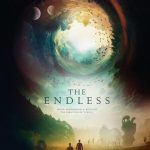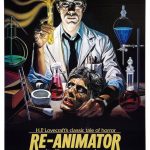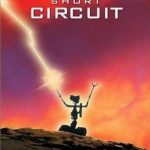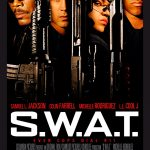War Horse (2011)
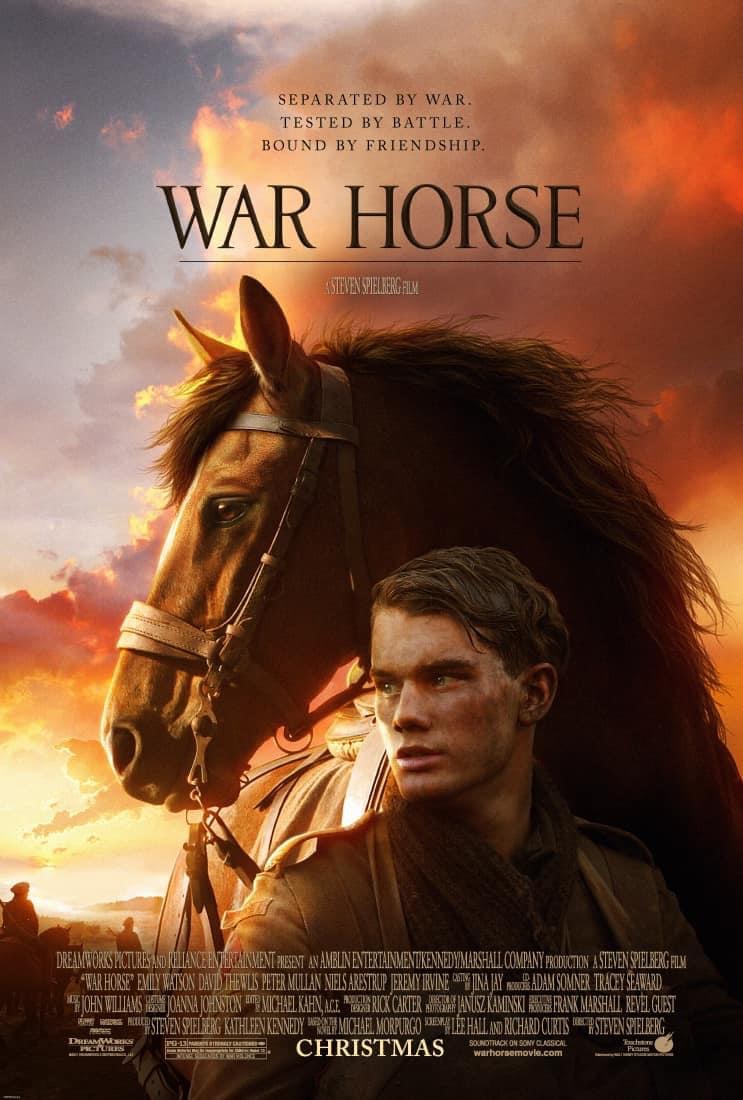
Directed by Steven Spielberg, War Horse is a historical war drama that tells the poignant and emotional story of Joey, a horse caught in the turmoil of World War I, and the bond he shares with his young owner, Albert Narracott. Based on Michael Morpurgo’s 1982 novel and adapted into a stage play before becoming a film, War Horse explores themes of loyalty, sacrifice, and survival through both human and animal perspectives. Spielberg’s signature blend of heartwarming moments and intense drama brings this story to life, though some of its emotional beats and pacing may not resonate with all viewers.
Suggested videos for you:
Plot Overview
The film begins in rural England, where a young man named Albert (Jeremy Irvine) develops a deep connection with Joey, a horse his father buys at an auction. When Albert’s family faces financial struggles, Joey is sold to the British cavalry, sending the horse into the horrors of World War I. The story follows Joey as he changes hands, encountering various soldiers, civilians, and adversaries across the war-torn landscape, each of whom develops a relationship with the horse. Throughout these experiences, the bond between Joey and Albert remains a driving force in the narrative, with Albert eventually enlisting in the army to search for his beloved horse.
The story moves between Joey’s journey and Albert’s, reflecting the horrors of war, the enduring power of love, and the way in which animals play a role in the lives of those affected by war. The film culminates in a dramatic reunion between Joey and Albert, drawing on the central theme of loyalty and the emotional connection between humans and animals.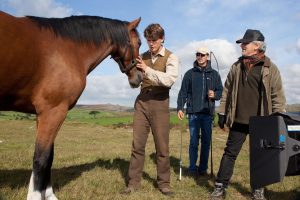
Themes and Emotional Core
At its heart, War Horse is a film about loyalty, resilience, and the innocence lost in the ravages of war. Joey, the horse, serves as a symbol of purity amidst the chaos of the battlefield. His ability to form bonds with various characters—whether they be soldiers, a French farm girl, or a German officer—demonstrates the universal capacity for compassion and connection, even in the most dire of circumstances. The emotional depth of the film is largely driven by Joey’s journey and his loyalty to those he encounters, which is mirrored by the unwavering determination of Albert to find his horse.
The film also explores the brutality of war and its indiscriminate destruction of both human and animal life. Spielberg doesn’t shy away from showing the harshness of trench warfare, with horses like Joey being put into perilous situations and suffering the devastating effects of the war. The film emphasizes how the violence of war extends beyond soldiers and civilians to include the animals that are enlisted in battle, highlighting the helplessness and innocence that are caught in the crossfire.
Despite these themes, the film does have moments that veer into sentimental territory. The emotional beats—particularly the final reunion between Albert and Joey—can feel overtly manipulative for some viewers, leaning heavily on tear-jerking moments that may be seen as overly contrived or predictable. However, for many, these moments offer catharsis, delivering the emotional payoff that Spielberg is known for.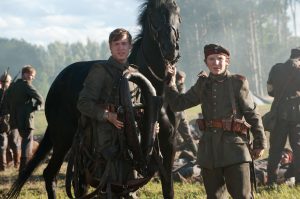
Cinematography and Visuals
The cinematography by Janusz Kamiński is stunning, capturing both the vastness of the war-torn landscapes and the intimacy of the quieter, personal moments. The film is visually striking, with Spielberg’s direction bringing both the natural beauty of the English countryside and the devastation of the battlefield to life. The sweeping shots of the fields and the intense, chaotic battle sequences are elevated by Kamiński’s signature use of light and shadow, emphasizing the emotional undertones of the story.
The battle scenes themselves are intense and vividly filmed, with Spielberg utilizing both practical effects and CGI to create the chaos of war. One of the most harrowing sequences involves Joey getting caught in barbed wire during a battle, heightening the tension and demonstrating the horror of war through the eyes of the horse. The film balances its large-scale war scenes with quieter, more intimate moments, adding depth and contrast to the narrative.
Performances and Characters
The performances in War Horse are generally strong, with Jeremy Irvine’s portrayal of Albert at the film’s emotional center. Irvine effectively conveys Albert’s devotion to Joey, from his youth in rural England to his transformation as a soldier on the front lines. His performance carries much of the film’s heart, though his character does sometimes fall into the role of the “innocent, determined hero,” without much additional depth.
Supporting performances from actors like Tom Hiddleston, Benedict Cumberbatch, and Peter Mullan contribute to the film’s emotional weight, although the characters they portray tend to be more one-dimensional, often serving as brief encounters in Joey’s journey. While the film focuses primarily on the bond between Albert and Joey, the human characters surrounding them are often less fully realized, making some of the human subplots feel secondary.
Joey himself, as portrayed through a combination of live-action and CGI, is undeniably the star of the film. The horse’s expressive eyes and movements convey deep emotion, making him a compelling focal point even without dialogue. Joey’s resilience and capacity for loyalty are the emotional backbone of the film, with his journey acting as a metaphor for the innocence and suffering that both humans and animals experience in wartime.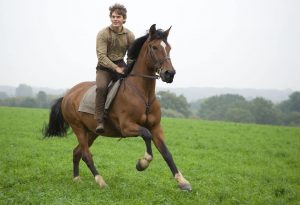
Conclusion
War Horse is a visually stunning, emotionally charged film that showcases Spielberg’s ability to tell sweeping, heartfelt stories with both grandeur and intimacy. While it can be heavy on sentimentality and occasionally predictable in its emotional beats, the film’s depiction of loyalty, sacrifice, and the horrors of war provides a poignant narrative that resonates with audiences. The performances, particularly from Jeremy Irvine, and the powerful central relationship between Albert and Joey, elevate the film, even if the human characters and pacing sometimes leave something to be desired. For fans of Spielberg’s work and animal-centric dramas, War Horse remains a compelling and emotional experience, one that honors the strength and resilience of both humans and animals in the face of war.


